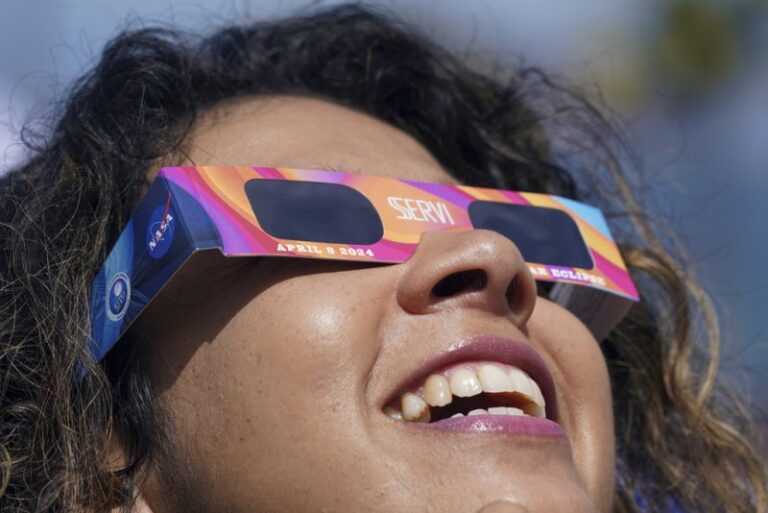For weeks, experts have been warning people not to look at the total solar eclipse without the proper safety gear. Did you listen?
Looking at the sun – during an eclipse or any other time – without certified viewing glasses can cause permanent eye damage.
“The lenses of your eye … can concentrate the rays of the sun so strongly as to cause an immediate burn. The same effect will occur in the retina and create essentially a hole in your vision, which sometimes can be permanent,” explained Dr. Russell Van Gelder with the American Academy of Ophthalmology.
The eclipse is only safe to witness with the naked eye during totality, or the period of total darkness when the moon completely covers the sun.
If you didn’t listen to the experts’ advice, you may suffer from solar eye damage, or solar retinopathy.
Symptoms of solar eye damage include blurred vision, sensitivity and color distortion. Directly after looking at the sun, you may see temporary “floaters” or “flashers” in your vision, according to Cleveland Clinic. Your eyes may also feel sore or painful.
In mild cases, you may experience watery eyes, headaches and sensitivity to light. In more serious cases, symptoms include blurry vision, eye pain, a blind spot in vision, straight lines appearing warped and rounded, or certain objects appearing smaller than they really are.
Mild cases can heal on their own, within one to six months, says Cleveland Clinic. Serious damage may be irreversible.
If you think you may have solar retinopathy, you should make an appointment with an ophthalmologist.
In one case of eclipse eye damage, a woman who viewed the 2017 eclipse without adequate protection went to Mount Sinai’s New York Eye and Ear Infirmary complaining of a black spot in her vision. Doctors discovered retinal damage that corresponded to the eclipse’s shape.
“The dark spot she was describing was in the shape of a crescent,” said Dr. Avnish Deobhakta, a Mount Sinai ophthalmologist.
There’s no set rule regarding the duration of a glance that can lead to permanent damage. Severity varies based on cloudiness, air pollution and a person’s vantage point.
Doctors say looking at a solar eclipse for even a few seconds unprotected isn’t worth the risk. There are reports of solar retinopathy after every solar eclipse, and U.S. eye doctors saw dozens of extra visits after the one in 2017.
(source)


